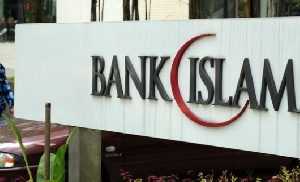Small and Medium Scale Enterprises (SMEs) in the country are seemingly excited at reforms by the Bank of Ghana that will see the imminent introduction of Islamic banking in Ghana, with some seeing it as a reprieve to business financing.
The central bank is expected to issue the country’s first Islamic banking licence by end of the year, which many SMEs say presents a solution to the high interest charge in the country since the business model of Islamic banking is based on profit and loss sharing and not on interest taking.
In an interview with the B&FT, some SMEs expressed delight and gave sighs of relief over introduction of the bank. Baba Yabdow, CEO of Yabco Focus Company Ltd., a fruit-juice company, described it as welcome news which entrepreneurs have been waiting for -- for a long, long time -- considering the hike of interest rates in the country.
“The interest rates are just killing us. There is no business presently that can operate with a 35 percent interest rate. It is very difficult, especially for those of us in manufacturing. If you borrow at the beginning of the year to start a business, by the time you are able to combine all your inputs of production you realise that about half of the year is gone. So you have just six months to work and pay back in full. How can that be possible?” he asked.
“So it is a welcome news and a big relief for us SMEs. Certainly, I will embrace it,” he said.
Another entrepreneur, Kwabena Danso, CEO of Boomers International Ltd. -- a firm that uses bamboo to make bicycles -- said that the move may push other banks to consider their terms and conditions to make it favourable to SMEs: “I think its great news for entrepreneurs. I believe this will even push other banks to review their interest rates to support the SMEs. It comes as a relief to us business people. If I don’t have investors by the time it will start operations, then definitely, I will go and do business with them”.
The Islamic banking system is founded on the tenets of Islam and the Sharia law, which forbids the receiving and paying of interest on loans -- and it has become a major industry player over the last four decades.
The Bank of Ghana recently increased its policy rate to 25 percent, a decision that has received a serious backlash and been branded insensitive by the business community because of the already high existing interest rates -- 30 percent per annum on average - charged by the banks.
It is however expected the Islamic banking licencee will shy away from giving monies to firms that produce goods/services considered unwholesome -- such as tobacco, alcohol or gambling, which are all prohibited under Islamic laws.
The Islamic banking industry, which began almost three decades ago, has made substantial growth and attracted the attention of investors and bankers across the world. Western financial institutions including Citigroup, Deutsche Bank, HSBC and UBS are increasingly offering Islamic products. There are nearly 300 Islamic banks and financial institutions worldwide whose assets been projected to grow to US$1trillion in the next couple of years.
Currently, the only financial institution that operates on the tenets of Islam and the Sharia Law in the country is Ghana Islamic Microfinance, which began operations as project of Edikanfo Progressive Foundation, a registered local Non-Government Organisation.
According to Lymin Creek, a research institution, another important characteristic that forms the basis for development of Islamic banks that stands to benefit businesses is the relationship with depositors. The Islamic banks deal with their customers on investment grounds rather than a pre-determined interest rate.
The bank invests the money of its depositors in highly profitable projects after going through strategic analysis in order to give a substantial return to their depositors. To ensure the project is successful, the bank further provides expert support to the company so that the project can be well-managed.
Nevertheless, this strategy seems to provide discomfort to some SMEs, as they believe their businesses will eventually be taken over by the bank. However, Mr. Yabdow is urging SMEs to dismiss that perception if they want to grow their businesses.
“In Africa we always think that when you start something the whole thing is yours, and so we don’t want to bring in people to help us make it better. I think people should now know that two heads are better than one. So businesses should embrace such partnership since it can take them global,” he said.
Business News of Thursday, 1 October 2015
Source: B&FT
Escaping high interest rates; SMEs look to Islamic banking
Entertainment












